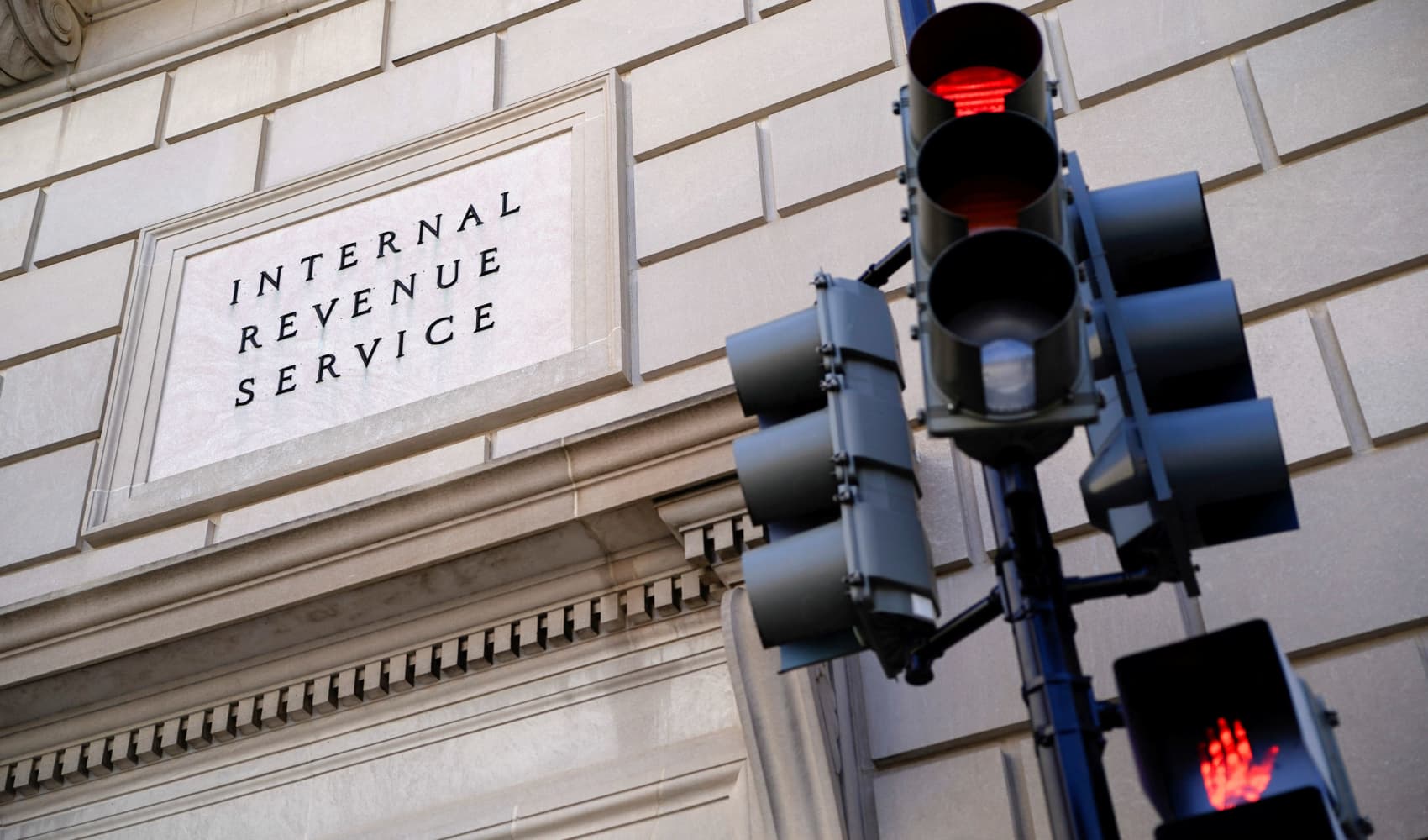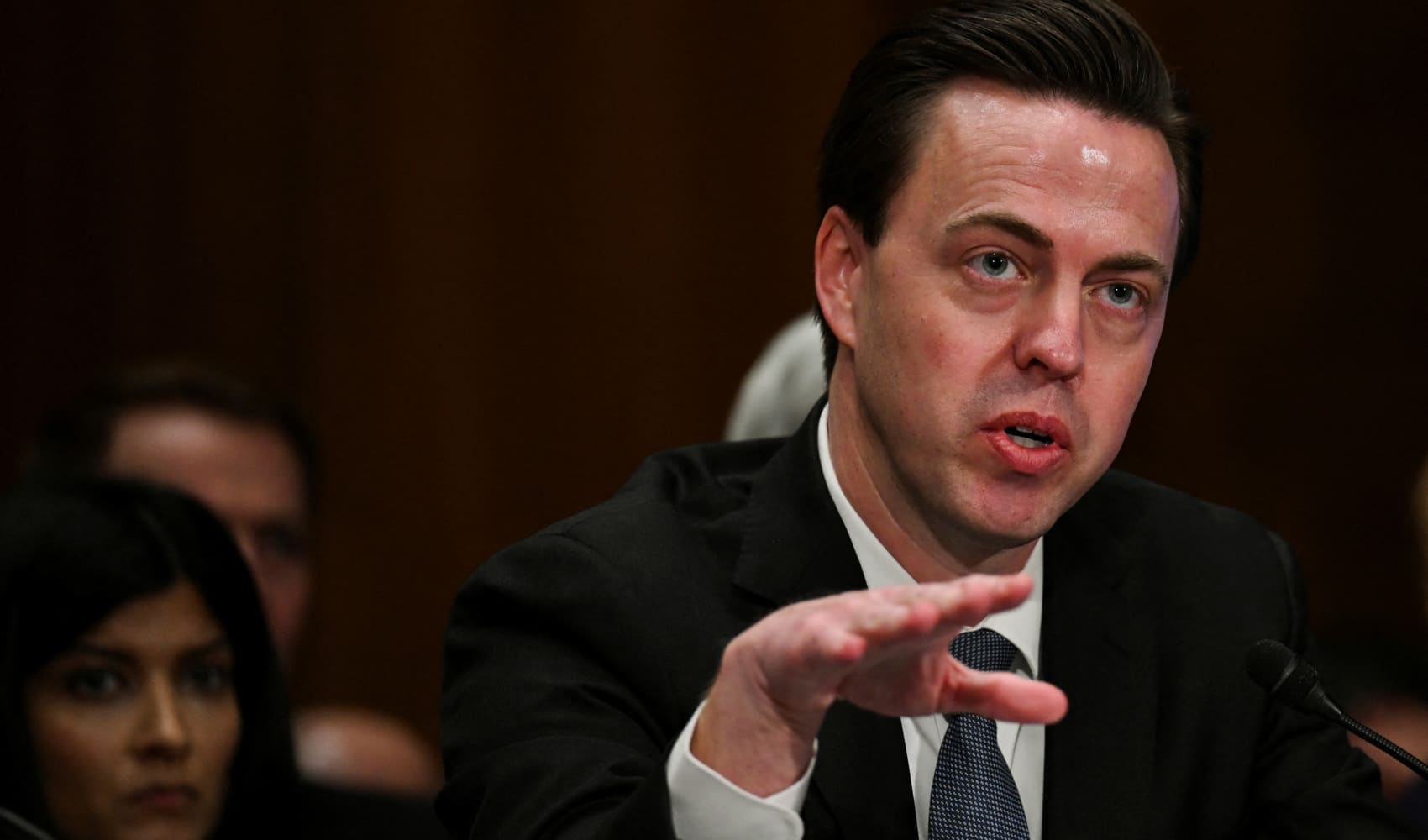IRS Auditor Exodus: DOGE Cuts Trigger Tax System Crisis!
IRS Gutted: Doge Cuts Trigger Auditor Exodus, Watchdog Warns!
Introduction: Is Your Tax Return About to Be Audited by a Bot?
Hold onto your hats, folks! It appears the IRS, the agency we all love to hate (or at least tolerate), is facing some serious turbulence. A recent watchdog report has revealed some startling figures: the IRS has lost nearly one-third of its tax auditors. Yes, you read that right. But why? Blame it on sweeping cuts spearheaded by Elon Musk's Department of Government Efficiency (DOGE). Are we talking about Dogecoin? No, but the implications are just as wild.
The Mass Exodus: Auditors Heading for the Hills
The Treasury Inspector General for Tax Administration (TIGTA) dropped a bombshell of a report in May 2025. According to their findings, as of March 2025, the IRS workforce had shrunk by over 11,000 employees. That's an 11% drop, which is a big deal, like losing one player from a ten-person football team before the Super Bowl. But the real kicker? The impact on revenue agents, those brave souls who actually conduct audits. A staggering 3,623 revenue agents, or 31%, have left the building.
H2: DOGE's Impact: Trimming the Fat or Cutting to the Bone?
H3: Musk's Efficiency Crusade: What's the Goal?
Elon Musk's involvement through the Department of Government Efficiency (DOGE) has sparked debate. Is this a necessary streamlining of a bloated bureaucracy, or a reckless gutting of a vital government function? Some argue that the IRS was inefficient and wasteful, ripe for reform. Others fear that these cuts will lead to increased tax evasion and a weaker IRS unable to effectively enforce tax laws. It's like trying to fix a leaky faucet with a sledgehammer – you might stop the drip, but you'll probably break the sink.
H2: The Numbers Don't Lie: A Closer Look at the Workforce Reduction
H3: Probationary Terminations and Deferred Resignation Programs
How did the IRS lose so many employees? The TIGTA report points to probationary terminations and the deferred resignation program as major contributors. These programs, while intended to improve efficiency, seem to have had the unintended consequence of driving experienced personnel out the door. Think of it like this: imagine a restaurant firing all its chefs and waiters at once. Sure, you might save some money on payroll, but who's going to cook the food and serve the customers?
H2: Treasury's Take: Collections Are Still a Priority?
H3: Bessent's Assurance: Empty Words or Genuine Commitment?
Despite the alarming attrition rate, U.S. Treasury Secretary Scott Bessent insists that "collections" remain a top priority for the agency. But can the IRS effectively collect taxes with a drastically reduced workforce? That's the million-dollar question. It’s like saying you want to win the race after your star runner breaks their leg.
H2: The Impact on You: Will Your Taxes Be Audited?
H3: Less Oversight, More Opportunities for Evasion?
So, what does all this mean for you, the average taxpayer? On the one hand, a smaller IRS workforce might mean a lower chance of being audited. But on the other hand, it could also mean less oversight and more opportunities for tax evasion. Imagine a neighborhood without police patrols – would you feel safer or more vulnerable?
H2: The Rise of AI: Robots to the Rescue?
H3: Automation to Fill the Gap: Can Algorithms Replace Auditors?
With fewer human auditors, the IRS may increasingly rely on artificial intelligence and automation to identify potential tax fraud. This could lead to more efficient audits, but also raises concerns about accuracy and fairness. Are we ready to be judged by algorithms? What happens when the AI makes a mistake? It's a brave new world, but it's also a potentially unsettling one.
H2: The Political Battleground: Democrats vs. Republicans on IRS Funding
H3: A Partisan Divide: Different Visions for the IRS's Future
The debate over IRS funding has become increasingly partisan. Democrats generally favor increased funding to strengthen enforcement and close the tax gap, while Republicans often advocate for cuts to reduce the agency's power and prevent perceived abuses. This political tug-of-war has significant implications for the IRS's ability to fulfill its mission. It’s like watching a seesaw with two very heavy people on either side – eventually, something's going to break.
H2: The Long-Term Consequences: A Weaker Tax System?
H3: Declining Audit Rates: A Recipe for Tax Evasion?
If the IRS continues to lose auditors, audit rates could decline even further. This could embolden tax evaders and undermine the integrity of the tax system. A healthy tax system relies on the perception that everyone is paying their fair share. When that perception erodes, voluntary compliance declines, and the system starts to crumble.
H2: Is This the End of the IRS As We Know It?
H3: Reimagining the IRS: A Need for Modernization?
Maybe this crisis is an opportunity to reimagine the IRS for the 21st century. Perhaps a more efficient, technologically advanced agency is possible. But it will require a serious commitment to modernization and a willingness to invest in the IRS's future. It’s time to think outside the box and see if there’s a way to create a more effective and equitable tax system for all.
H2: Potential for Increased Tax Fraud
H3: Fewer Auditors, More Opportunities
With significantly fewer auditors on staff, the opportunity for individuals and corporations to engage in tax fraud increases dramatically. The risk of detection diminishes, potentially leading to a surge in unreported income and illegal deductions. This could create a domino effect, as a few high-profile cases of tax evasion encourage others to take similar risks.
H2: The Impact on Small Businesses
H3: Are Small Businesses More Vulnerable?
Small businesses, often operating with limited resources and accounting expertise, may be disproportionately affected by the changes at the IRS. On one hand, the reduced audit rate might seem beneficial. On the other hand, without proper guidance and oversight, they could inadvertently make mistakes that lead to future penalties. It’s a double-edged sword.
H2: The Role of Technology in the Future of Tax Audits
H3: Leveraging AI and Data Analytics
As the IRS workforce shrinks, the reliance on technology, especially artificial intelligence (AI) and data analytics, will become crucial. These tools can help identify patterns of tax evasion and prioritize audits of the most likely offenders. However, ensuring fairness and accuracy in AI-driven audits is a major challenge. We need to make sure the robots don’t discriminate!
H2: Solutions and Recommendations
H3: What Can Be Done to Address the Crisis?
Several steps can be taken to mitigate the negative impacts of the IRS workforce reduction. These include increasing funding for training and recruitment, improving employee retention, and investing in modern technology. Furthermore, fostering a more collaborative relationship between the IRS and taxpayers can help promote voluntary compliance and reduce the need for costly enforcement actions. We need to build bridges, not walls.
H2: The Silver Lining: Opportunity for Reform
H3: Streamlining Processes and Reducing Bureaucracy
Despite the challenges, the IRS workforce reduction presents an opportunity for fundamental reform. By streamlining processes, reducing unnecessary bureaucracy, and embracing innovative technologies, the agency can become more efficient and effective. It's time to throw out the old playbook and write a new one.
H2: Conclusion: The Future of Tax Collection in America
The IRS is at a crossroads. The loss of nearly one-third of its tax auditors, driven by cuts from Elon Musk's DOGE, poses a significant threat to the integrity of the tax system. While Treasury Secretary Bessent insists that collections remain a priority, the reality on the ground paints a different picture. Whether the IRS can adapt and overcome these challenges remains to be seen. One thing is certain: the future of tax collection in America is uncertain, and it's up to policymakers to ensure a fair and equitable system for all.
Frequently Asked Questions (FAQs)
- Q: Why is the IRS losing so many employees?
- A: The IRS workforce is declining due to a combination of probationary terminations, deferred resignation programs, and budget cuts implemented by the Department of Government Efficiency (DOGE).
- Q: How will the IRS workforce reduction affect taxpayers?
- A: It could lead to a lower chance of being audited, but also potentially more opportunities for tax evasion due to reduced oversight.
- Q: Is the IRS planning to use AI to replace human auditors?
- A: Yes, the IRS is likely to rely more on artificial intelligence and automation to identify potential tax fraud, but this raises concerns about accuracy and fairness.
- Q: What can be done to address the IRS workforce crisis?
- A: Possible solutions include increasing funding for training and recruitment, improving employee retention, and investing in modern technology.
- Q: What is the Department of Government Efficiency (DOGE) and how is it related to the IRS cuts?
- A: The Department of Government Efficiency (DOGE), associated with Elon Musk, is implementing cuts across various government agencies, including the IRS, with the goal of streamlining operations and reducing costs. These cuts have contributed to the decline in the IRS workforce.


